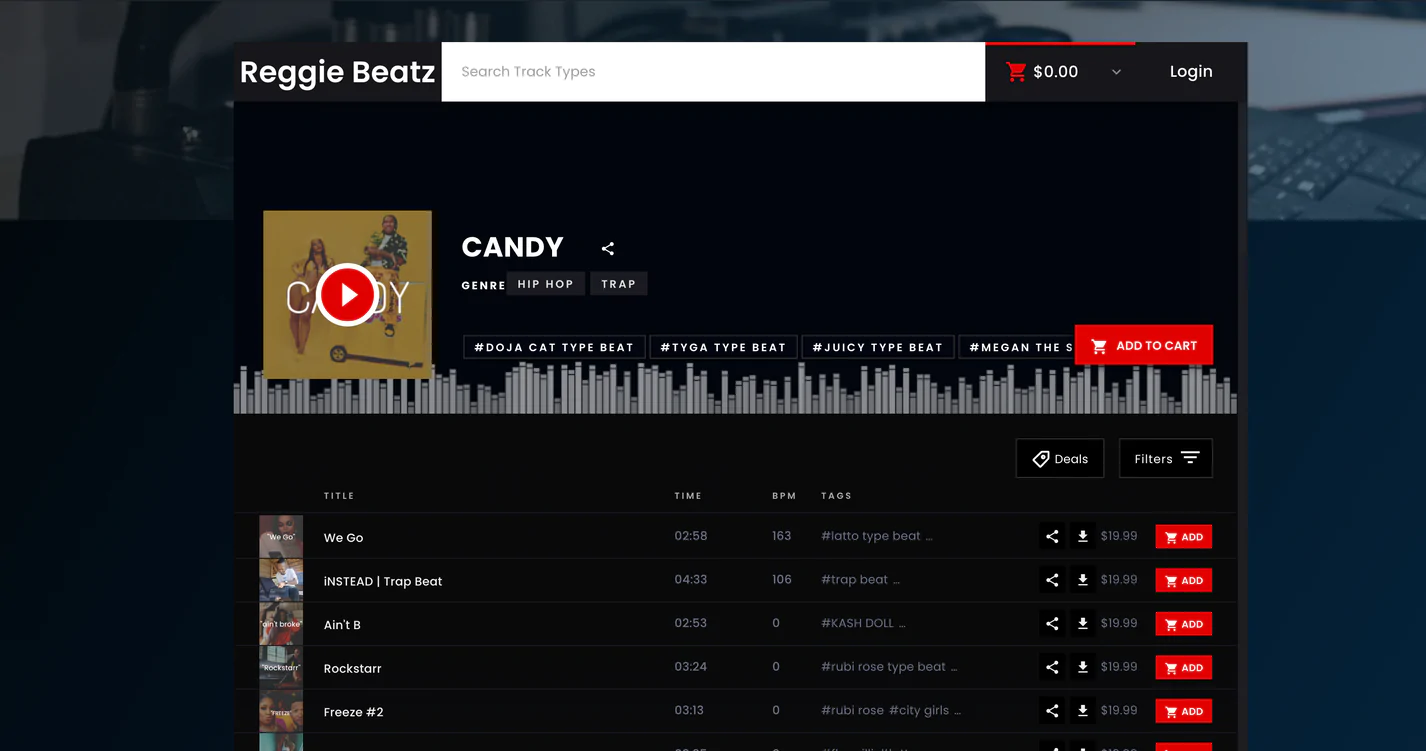
Discover the Top Beat Selling Websites for Music Producers
Are you looking to sell your beats online but don’t know where to start? Look no further than our comprehensive

Beat licensing is the process of obtaining the legal rights to use a piece of music, typically a beat or instrumental, for a specific purpose. This can include using the beat in a commercial or non-commercial recording, film, TV show, video game, or other media.
There are two main types of beat licensing: exclusive and non-exclusive.
Non-exclusive beat licensing is a type of licensing agreement where the producer allows multiple artists to use the same beat, while still retaining the rights to the beat and the ability to sell it to other artists. This type of license is often referred to as a “lease” and it is typically less expensive than an exclusive license.
Non-exclusive beat licenses are typically granted for a specific period of time, such as one year or two years, and the producer can choose to renew the license or let it expire. The producer also sets a limit on the number of units that can be sold or streamed, and the license may include or exclude certain types of use such as for commercial use or distribution.
Non-exclusive beat licenses are often used by independent artists who want to use a beat for a specific project but don’t want to spend the money to buy exclusive rights. They are also used by producers who want to maximize their revenue from a beat by leasing it to multiple artists.
Types of Non Exclusive beat licenses
There are several types of non-exclusive leases that music producers can offer to artists and companies:
It’s important for music producers to have a clear and legal contract in place when leasing their beats. This contract should specify the terms of the lease, including the length of the lease, the number of units that can be sold or streamed, the audio format and any restrictions on the use of the beat. Additionally, it’s essential to ensure that the beat or instrumental is free of any copyright infringement and that all samples used in the beat have been legally cleared.Regenerate response
Exclusive beat sale is a type of licensing agreement where the producer sells the exclusive rights to a beat to a single artist or company. This means that the producer cannot sell the beat to any other artists or companies, and the buyer obtains full ownership of the beat, meaning they can use it as they please, and can even re-sell it. Exclusive beat sales are typically more expensive than non-exclusive licenses or leases because the artist or company is obtaining full ownership of the beat.
Exclusive beat sales are often used by established artists and companies who want to use a beat for a specific project and want to ensure that no one else can use it. They are also used by producers who want to maximize their revenue from a beat by selling the exclusive rights to a single artist or company.
It’s important for music producers to have a clear and legal contract in place when selling their beats. This contract should specify the terms of the sale, including the transfer of ownership rights, and any restrictions on the use of the beat, such as the number of units that can be sold or streamed, and any terms for re-selling the beat. Additionally, it’s essential to ensure that the beat or instrumental is free of any copyright infringement and that all samples used in the beat have been legally cleared.
It’s important to have a clear understanding of the legal and financial aspects of beat licensing, such as contracts, invoicing, and royalties. Additionally, it’s essential to ensure that the beat or instrumental is free of any copyright infringement, and that all samples used in the beat have been legally cleared. A beat license agreement should be clear, and it’s important to have a clear understanding of the terms and conditions of the agreement, including the rights and obligations of both parties.

Are you looking to sell your beats online but don’t know where to start? Look no further than our comprehensive

Pricing your beats can be a complex process, as it depends on various factors such as the type of beat,